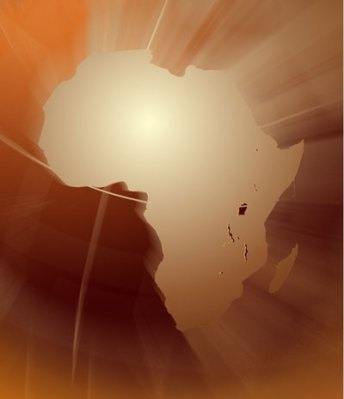The news that i/o Ventures had launched the Savannah Fund in Africa is clearly welcome news for an emerging continent. It’s $10m fund size will be a shot in the arm for the eco-system there. But I was surprised to see that it was being described in some quarters as the “first ever” Sub-Saharan African incubator and accelerator. Because it patently is not.
“I think MEST would actually be the first model in this space,” said African tech watcher Ben White of vc4africa.biz when I asked him about this. MEST has a fund size of $20m, although it’s invested via a non-profit.
So to start getting into this, it may be that we are well over-due for a run-down of accelerators in Africa. Here’s what we’ve found so far.
There’s clearly been a proliferation of coworking spaces and tech incubators around Sub-Saharan Africa over the last 3-5 years. Accelerators linked with funds are a more recent phenomenon:
1. MEST: Meltwater Entrepreneurial School of Technology (MEST) provides training and mentoring in Accra, Ghana. Started in 2008, MEST is a not-for-profit NGO that is funded by the Meltwater Group through its non-profit Meltwater Foundation. Invests in 3-5 startups per annual programme. Fund size: $20m spread over 10 years.
2. HumanIPO (Nairobi, Kenya). Launched 2011. 88mph is their seed fund. Takes a minimum 10-15 investments per year. Has room for 25 startups in its space. Fund size: Uknown.
3. Umbono (Cape Town, South Africa). Launched 2011. This is Google’s accelerator & fund. Puts in $25k to $50k seed capital. Fund size: Unknown.
4. ActivSpaces (Buea & Douala, Cameroon) was launched in 2009 and is a co-working space linked with the Sanaga Ventures seed fund. Size: Raising $1m.
5. Mara Launchpad (Kampala, Uganda). Launched 2012. Backed by Mara Foundation. Fund size: Unknown.
6. Lastly there is the co-working space iHub (Nairobi, Kenya) launched 2010 and is now the base for the Savannah Fund as mentioned above. Fund Size: $5m, but is aiming to be $10m eventually.
The Savannah Fund is coming out of i/o co-founder Paul Bragiel and i/o entrepreneur-in-residence Mbwana Alliy along with Erik Hersman a cofounder the Ushahidi crowd sourcing platform and a cofounder of Nairobi’s iHub. Five early stage $25,000 for 15% equity and three to six months to prove themselves. Follow-on funding for the successful ones will be in the region of $100,000 to $200,000.
Savannah Fund has backing from Tim Draper, Dave McClure of 500 Startups, Yelp co-founder Russ Simmons, and Dali Kilani and Roger Dickey of Zynga, as well as local Kenyan entrepreneurs, including Karanja Macharia of Mobile Planet.
Savannah will also run an incubator like i/o in San Francisco for ten companies a year, but it appears the companies will be sourced in Nairobi with the ones showing promise being shipped over from East Africa to the US to scale up.
The consensus on the ground amongst seasoned AfricaTech watchers is that while Nigeria has the fastest growing economy it’s also pretty dangerous at the moment. Kenya also has its issues but is widely regarded as a strong hub for tech companies in Africa, and Tansania has potential, but Ghana is quickly gaining a reputation because of its relatively stable business and political environment and the English language is widespread. It’s also becoming a big airline hub because airlines prefer not to drop their staff into potentially dangerous countries.
Expect more Africa coverage from TechCrunch in due course…
